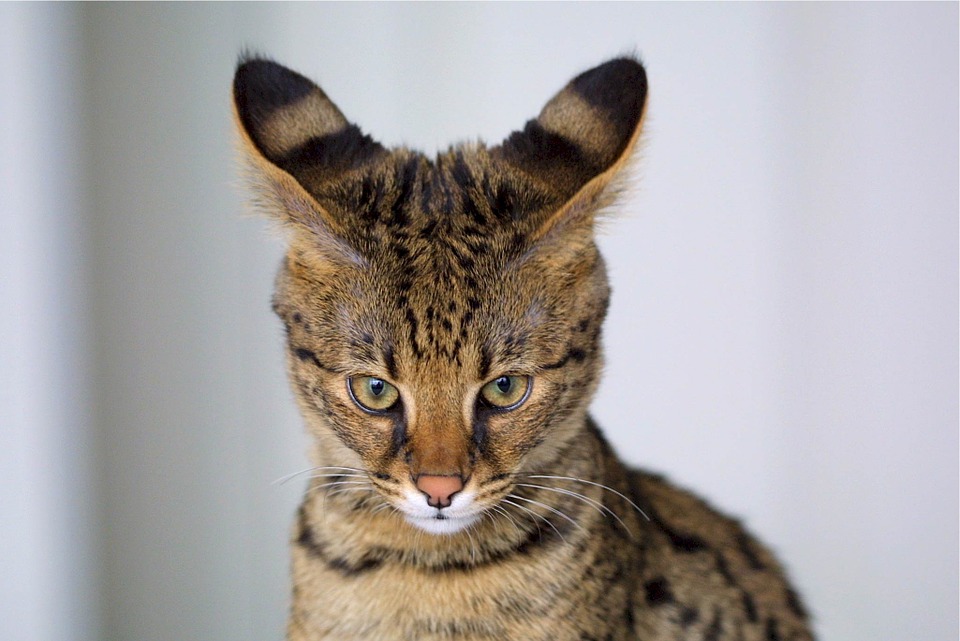
Savannah Cat
The Savannah cat is a captivating and exotic hybrid breed known for its striking appearance, which resembles that of a wild African Serval. This unique breed is the result of crossing a domestic cat with a Serval, creating a large, athletic, and highly intelligent feline with distinctive markings and a playful personality. While Savannah cats can make fascinating and affectionate companions, they require special care and consideration due to their wild ancestry and energetic nature.
Legal Status in the US:
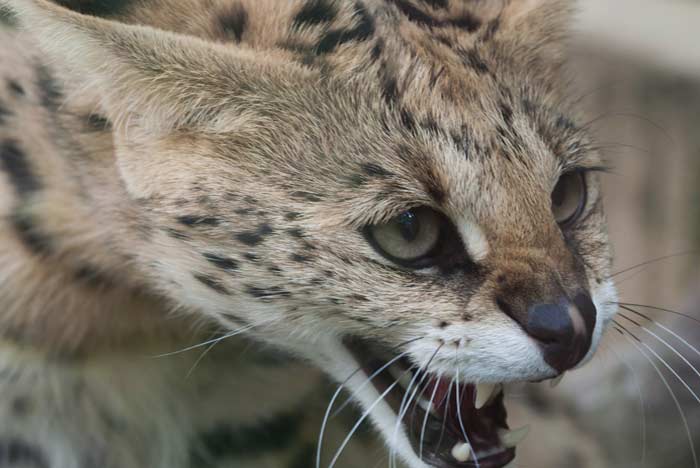
The legality of owning a Savannah cat varies by state and locality in the United States. Some states have strict regulations or outright bans on owning exotic pets, including Savannah cats, while others may require permits or licenses. It’s important to research local laws and regulations before acquiring a Savannah cat to ensure compliance with legal requirements.
Suitability as House Pets:
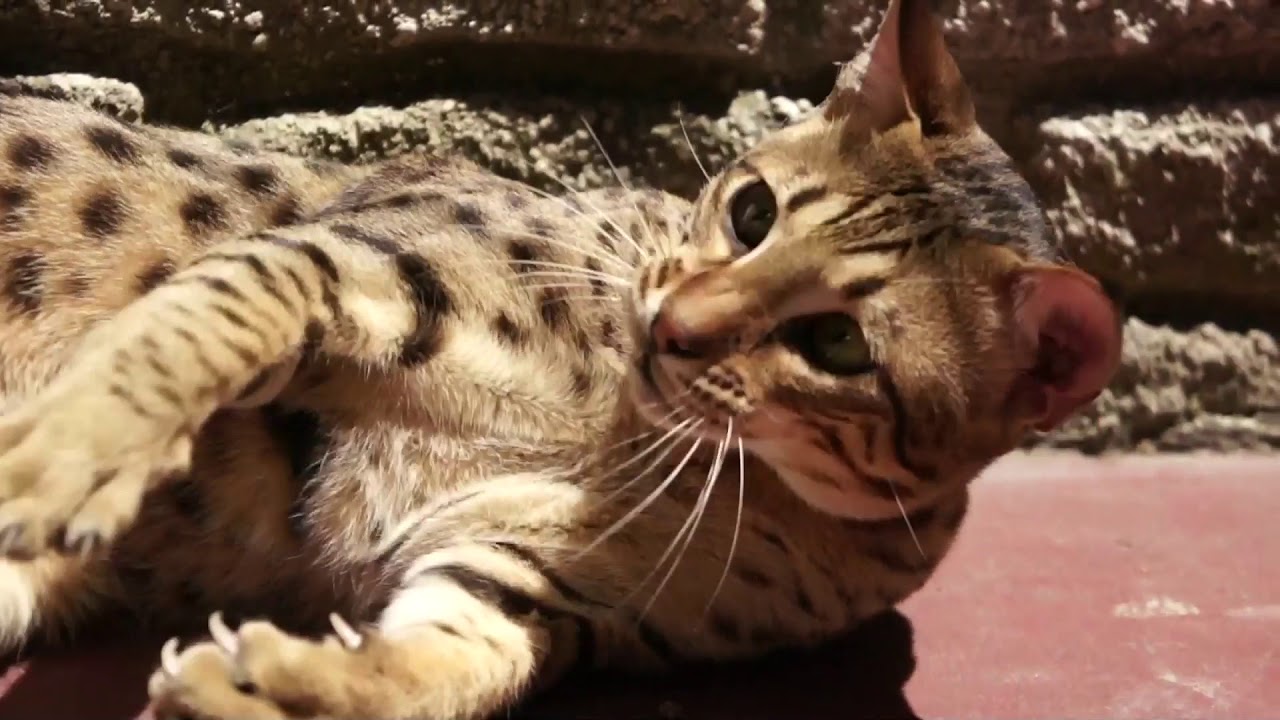
Savannah cats can make wonderful house pets for individuals or families who understand and appreciate their unique characteristics. They are intelligent, curious, and playful cats that thrive on mental and physical stimulation. However, due to their active nature and need for space to roam and explore, Savannah cats may not be suitable for all households, particularly those with limited space or young children.
Temperament and Behavior:

Savannah cats are known for their outgoing and social personalities. They are often described as dog-like in their behavior, forming strong bonds with their owners and enjoying interactive play and companionship. Savannah cats are highly intelligent and can be trained to perform tricks, play fetch, and even walk on a leash. While they can be affectionate and enjoy cuddling with their human companions, they also have an independent streak and may prefer to explore their surroundings on their own terms.
Litter Box Training:
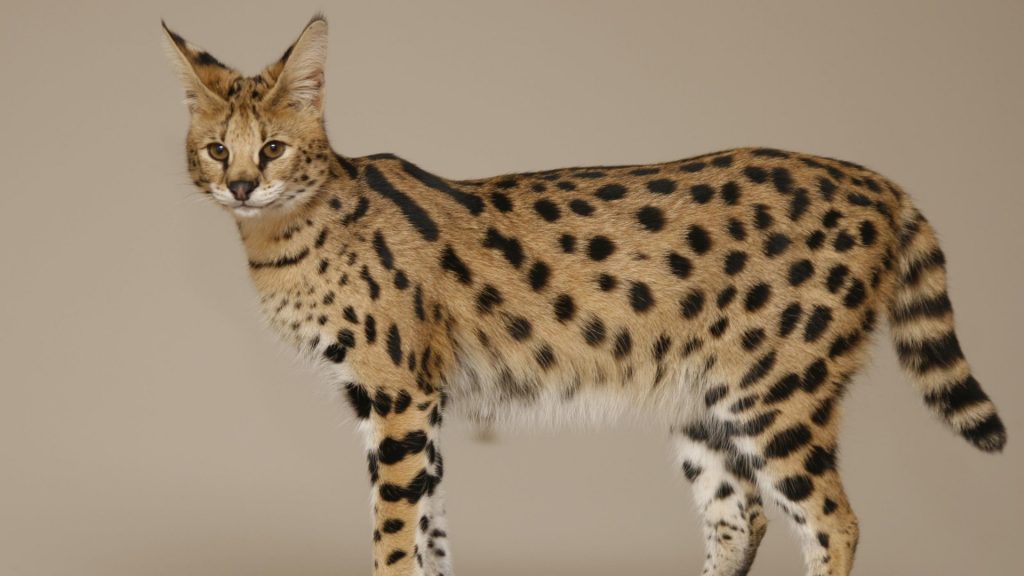
Like domestic cats, Savannah cats can be trained to use a litter box from a young age. Providing a clean and accessible litter box in a quiet, private location is essential for successful litter box training. Positive reinforcement techniques, such as praise and treats, can help encourage proper litter box habits. It’s important to maintain a consistent cleaning routine to keep the litter box clean and odor-free, as Savannah cats may be more sensitive to dirty litter boxes.
Considerations Before Getting a Savannah Cat:
While Savannah cats can be loving and affectionate companions, there are several important considerations to keep in mind before bringing one into your home:
- Legal Restrictions: Ensure that owning a Savannah cat is legal in your area and that you comply with any applicable regulations or permits.
- Space Requirements: Savannah cats are active and energetic cats that require ample space to roam and play. Providing a stimulating environment with opportunities for exercise and mental stimulation is essential for their well-being.
- Time and Attention: Savannah cats thrive on attention and interaction with their owners. They may become bored or destructive if left alone for long periods, so be prepared to devote time and attention to their care and enrichment.
- Training Needs: Savannah cats are intelligent and trainable but may also exhibit challenging behaviors, such as climbing, jumping, and vocalizing. Consistent training and positive reinforcement techniques are essential for managing their behavior and ensuring a harmonious relationship.
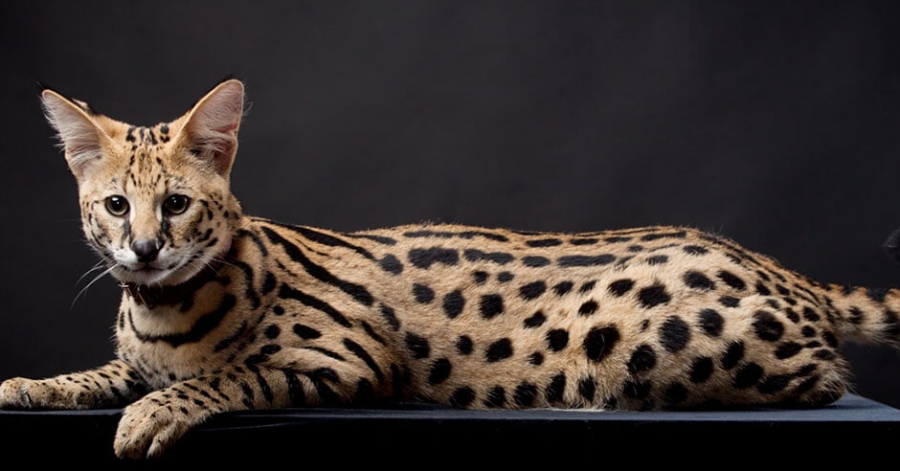
Frequently Asked Questions about Savannah Cats
Are Savannah cats legal in the US?
- The legality of owning a Savannah cat varies by state and locality in the United States. Some states have strict regulations or outright bans on owning exotic pets, including Savannah cats, while others may require permits or licenses. It’s important to research local laws and regulations before acquiring a Savannah cat to ensure compliance with legal requirements.
Are Savannah cats good house pets?
- Savannah cats can make wonderful house pets for individuals or families who understand and appreciate their unique characteristics. They are intelligent, curious, and playful cats that thrive on mental and physical stimulation. However, due to their active nature and need for space to roam and explore, Savannah cats may not be suitable for all households, particularly those with limited space or young children.
Are Savannah cats cuddly?
- Savannah cats can be affectionate and enjoy cuddling with their human companions, but their level of cuddliness can vary depending on the individual cat’s personality and temperament. Some Savannah cats may enjoy being held and cuddled, while others may prefer to interact with their owners in other ways, such as playing or exploring.
Do Savannah cats use a litter box?
- Yes, like domestic cats, Savannah cats can be trained to use a litter box from a young age. Providing a clean and accessible litter box in a quiet, private location is essential for successful litter box training. Positive reinforcement techniques, such as praise and treats, can help encourage proper litter box habits.
Why not to get a Savannah cat?
- While Savannah cats can be loving and affectionate companions, there are several important considerations to keep in mind before bringing one into your home. These include legal restrictions on ownership, the space requirements of Savannah cats, the time and attention they require, and the need for consistent training to manage their behavior. Additionally, Savannah cats may not be suitable for households with limited space or young children due to their active and energetic nature.
